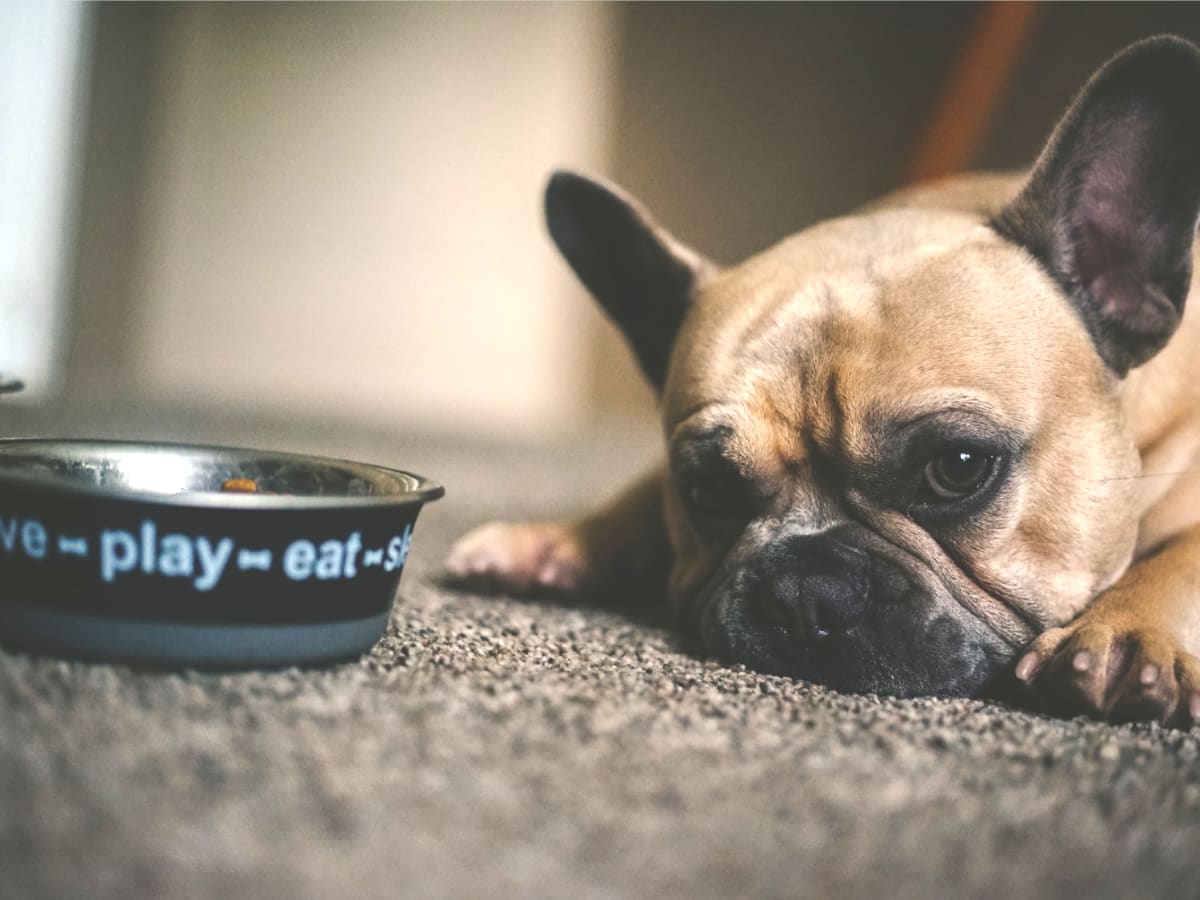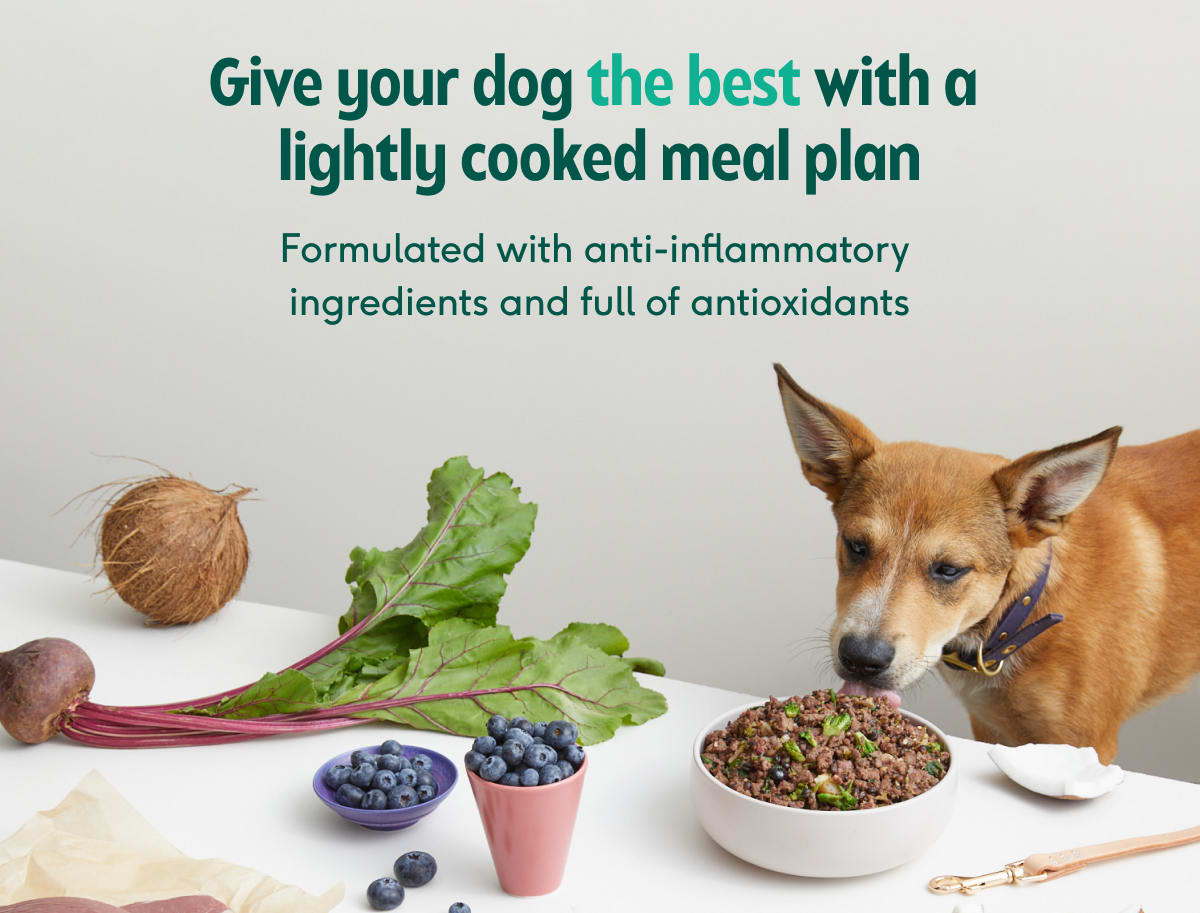Did you know that your dog has a 1 in 4 chance of developing dog cancer in their life?
Just like in humans, the incidence of dog cancer has been increasing over the past few decades. As a society, we have normalised dog cancer, to be an inevitable part of our furry friends aging. I’m sure you know of a dog, or have heard of a dog who’s battled cancer in their life.
November marks Pet Cancer Awareness Month across the world. This year, we are here to challenge the normalisation of dog cancer. Our goal at Lyka is to keep our furry friends in our lives for as long as possible, and we believe that optimising nutrition is an important tool to do so.
Cancer is an extremely complex topic. Although further research is still needed, cancer is being increasingly thought of as a metabolic disease in both the human and canine medical fields.
Evidence is suggesting that switching pupper from kibble to minimally processed food can decrease their cancer risk. So why don’t we get down to the nitty gritty of potential dangers of processed dog food and cancer, and what fresh foods can bring to the table…
High temperatures can change the chemical structure of food
One of the dangers of processed dog food is the high temperatures that go into making kibble, typically upwards of 200 degrees Celsius. Scorching foods not only affects the natural nutritional value of the food, but also has shown to cause free radicals to form and carcinogenic chemicals to be released.
Heterocyclic amines (HCAs) and Polycyclic aromatic hydrocarbons (PAHs) are chemicals formed when muscle meat is cooked at high temperatures. Acrylamides are chemicals formed when certain starchy foods are heavily processed. Both are mutagenic, meaning that they can change the structure of DNA and research has emerged to suggest that these chemicals increase cancer risk in both rodents and humans, and we suspect the same is true for our dogs.
The blow with high-temperature processing is two-fold, as it also reduces the natural antioxidants in the food. Anti-oxidants are the substances that help protect pupper’s body from those very free radicals. Because of this, processed dog food such as kibble can cause oxidative stress and lead to an unbalance between free radicals and antioxidants in pupper’s body, thus increasing their risk of dog cancers.

Glucose isn’t as sweet as you think…
We’ve known for almost 100 years that glucose is linked to cancer cell growth thanks to Otto Warburg’s research from the 1930s. Warburg won a Nobel Prize for his discovery that cancer cells exhibit a greater rate of glycolysis than normal cells, meaning they generate energy to grow from the breakdown of glucose to energy.
The scary part about kibble? Dry food typically contains over 50% carbohydrate ingredients, in order to create its biscuit-like consistency. When pupper digests kibble, the high levels of carbohydrates are broken down into glucose. Cancer cells metabolise this sugar through a process called anaerobic glycolysis, fuelling their growth.
The main carbohydrate culprits in kibble are grains such as rice, corn and wheat. But what about grain-free kibble? Even grain-free kibble needs high starch content to form the biscuit consistency, and most have high levels of non-grain carbohydrates such as potatoes, chickpeas, legumes or peas. Although the magnitude and biological implications of this metabolic response are not yet quantified, with the current increases in inflammatory disorders seen in dogs, we hypothesise that avoiding high-GI carbohydrates, and therefore avoiding kibble, is a key driver of pupper’s health.
Chronic inflammation could be a root cause
Our understanding of the role of inflammation in the human body has increased greatly, and inflammation is now recognised as a common root cause of many chronic diseases across the Western population, including cancer. It is thought that the relationship between inflammation and cancer is also mirrored in our furry friends. How exactly is chronic inflammation linked to an increased cancer risk?
Cancer cells develop due to changes in the structure of the cells. There are two types of cell changes– genetic alterations or epigenetic alternations. Genetic alterations are permanent mutations of the DNA. On the other hand, epigenetics alternations change the gene expression, rather than the DNA sequence itself, and are largely driven by lifestyle factors.
Factors such as nutrition, lifestyle, exercise and toxins are all capable of changing the gene expression, either in a positive or negative way. Chronic inflammation induces epigenetic alteration and has shown to increase the risk of developing cancers in humans, and we hypothesise this is likely the case for dogs too.
Could kibble be driving the chronic inflammation, and play a part in the cancer epidemic in dogs? A study from the University of Helsinki found that dogs who were on a kibble diet had elevated levels of homocysteine – 10 times higher versus those who ate a minimally processed diet. Homocysteine is an inflammation marker that helps to determine the risk of inflammatory diseases, such as cancer.
Although there is still further research required to determine the extent of the link between kibble and cancer, there are many concerning signs. It appears that the combination of high carbohydrate, free-radicals, low anti-oxidants may cause pupper’s body to work more aggressively to metabolise the food, leading to metabolic stress and chronic inflammation, which ultimately fosters a higher risk environment for cancer to develop.

What can real foods bring to the table?
Although research is still evolving, there are some promising signs pointing to the power of feeding pupper a fresh, natural diet to reduce their cancer risk and, in some cases, even reverse it. As Hippocrates once said, ‘let food be thy medicine’.
Let’s start with the basics of cooking. Minimally processed dog food such as Lyka is lightly cooked at temperatures below the levels required for carcinogenic chemicals to form. The other positive, is that the bioactives, such as vitamins, antioxidants, phytonutrients, remain largely intact, meaning pupper’s body can take full advantage of the natural nutrition offered by the ingredients.
One of the key cancer-protective benefits that minimally processed ingredients can offer is antioxidants. The wholefood antioxidants from ingredients such as shiitake mushrooms, ginger and blueberries have shown anti-cancer and chemo-protective mechanisms. Other ingredients such as broccoli have even been shown to reduce growth of bladder cancer in dogs.
It’s not just about the fresh ingredients. A recipe formulation focused on reducing the risk of cancer is just as important. Dr. Greg Olgivie has led research into the optimal “The Cancer Care” diet. He concluded that a diet of low simple carbohydrates, moderate protein and high-quality unsaturated fat is most effective for dog cancers in patients.
Dr. Olgivie found that high amounts of Omega 3 fats were successful in pro-longing dog patient life. But it’s important to balance the anti-inflammatory Omega 3s with the pro-inflammatory Omega 6s. For example, we at Lyka believe that AAFCO’s minimum Omega 6:3 ratio of 30:1 may be pro-inflammatory, and instead have opted for much lower Omega 6:3 ratios of 1.1-5.6:1 in our meals. Another recipe consideration is high GI carbohydrates. We are philosophically against adding higher glycemic index carbohydrates, such as potatoes, rice and corn, due to risk of blood sugar spikes and therefore the increased cancer risk of serving these foods to pupper. Lyka recipes focus on low GI carbohydrates such as leafy vegetables, butternut squash and sweet potato.
Lyka, striving to design the optimal diet for dog health
Our Lyka recipes have fresh wholefood ingredients that are packed full of bioactive nutrients. They are gently cooked at low temperatures and below durations for the carcinogenic chemicals to form. Our recipes are packed with ingredients containing the beneficial nutrients such as antioxidants, that can help fight free radicals, and anti-inflammatory omega-3s .
There is no “one diet fits all”, but our Lyka recipes aim to provide optimised natural nutrition for the vast majority of dogs. Our recipes are based on the solutions employed by prominent Integrative Veterinarians with clinical experience in nutritional counseling and diet design.
Make a change in pupper’s diet and try out our sampler box so that pupper can live out their best life.
)
)


)
)
)
)
)
